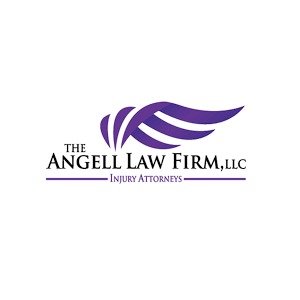Best Toxic Mold Lawyers in Greenville
Share your needs with us, get contacted by law firms.
Free. Takes 2 min.
List of the best lawyers in Greenville, United States
About Toxic Mold Law in Greenville, United States
Toxic mold refers to a type of mold that produces harmful toxins, posing potential health risks to individuals exposed to it. In Greenville, United States, laws have been established to protect citizens from the dangers of toxic mold. These laws aim to address issues related to mold contamination, property damage, and health risks caused by mold exposure.
Why You May Need a Lawyer
Seeking legal assistance regarding toxic mold becomes necessary in various situations. Some common scenarios where you may require a lawyer include:
- Landlord-Tenant Disputes: If your landlord fails to address mold issues or refuses to provide appropriate remediation, a lawyer can help protect your rights and seek compensation for any damages incurred.
- Property Damage Claims: If your property has been damaged due to toxic mold, a lawyer can help you file a claim against responsible parties such as insurance companies, contractors, or negligent individuals.
- Personal Injury Claims: If you've suffered health issues due to toxic mold exposure, a lawyer can assess your situation, gather evidence, and help you pursue a personal injury claim against the accountable party.
- Building Code Violations: When landlords or property owners violate local building codes related to mold prevention and remediation, a lawyer can assist in holding them accountable for their negligence.
- Real Estate Transactions: If you're buying or selling a property affected by toxic mold, it's crucial to navigate the legal complexities involved. A lawyer can ensure your interests are protected throughout the transaction.
Local Laws Overview
The local laws in Greenville, United States, outline specific regulations to address toxic mold concerns. Some key aspects include:
- Mold Disclosure Requirements: In real estate transactions, sellers are often obligated to disclose information about any mold issues within the property.
- Landlord Responsibilities: Landlords are typically responsible for maintaining mold-free living spaces and must promptly address any mold-related issues reported by tenants.
- Tenant Rights: Tenants have the right to a habitable living environment and can take legal action if landlords fail to address mold problems within a reasonable timeframe.
- Remediation Standards: The local laws may stipulate the necessary standards and procedures for mold remediation, including the use of licensed professionals and safe removal practices.
- Health and Safety Regulations: Authorities may have specific health and safety regulations in place to protect individuals from exposure to toxic mold and related health risks.
Frequently Asked Questions
1. Can I sue my landlord for mold-related health issues?
If your landlord was aware of the mold problem or failed to address it within a reasonable timeframe, you may have grounds to sue for your mold-related health issues. Consult with a lawyer to evaluate the specifics of your situation.
2. What evidence do I need to support a toxic mold claim?
Collecting evidence is crucial in establishing a toxic mold claim. This may include photographs or videos of the mold, medical records documenting health issues, correspondence with your landlord, and any expert opinions or reports related to the mold contamination.
3. How long do I have to take legal action for mold issues?
The statute of limitations regarding mold-related legal actions can vary. It is advisable to consult a lawyer as soon as possible to understand the specific time limits applicable to your case.
4. Can I break my lease due to toxic mold?
In certain circumstances, you may be able to break your lease if your landlord fails to address toxic mold issues that substantially affect the habitability of your rental unit. Consult with a lawyer to understand your options and legal rights.
5. How can I prevent toxic mold in my home?
To prevent toxic mold, it's essential to maintain proper ventilation, control moisture levels, promptly address any water leaks or damage, use mold-resistant materials when constructing or renovating, and ensure regular inspections for early detection.
Additional Resources
- Environmental Protection Agency (EPA): https://www.epa.gov/mold
- South Carolina Department of Health and Environmental Control (SCDHEC): https://www.scdhec.gov/environment/bureau-environmental-health
- South Carolina Bar Association: https://www.scbar.org/
Next Steps
If you require legal assistance regarding toxic mold issues in Greenville, United States, it is crucial to consult with an experienced attorney specializing in toxic mold law. They can offer personalized advice based on the specifics of your situation and guide you through the legal process to protect your rights and seek appropriate remedies.
Lawzana helps you find the best lawyers and law firms in Greenville through a curated and pre-screened list of qualified legal professionals. Our platform offers rankings and detailed profiles of attorneys and law firms, allowing you to compare based on practice areas, including Toxic Mold, experience, and client feedback.
Each profile includes a description of the firm's areas of practice, client reviews, team members and partners, year of establishment, spoken languages, office locations, contact information, social media presence, and any published articles or resources. Most firms on our platform speak English and are experienced in both local and international legal matters.
Get a quote from top-rated law firms in Greenville, United States — quickly, securely, and without unnecessary hassle.
Disclaimer:
The information provided on this page is for general informational purposes only and does not constitute legal advice. While we strive to ensure the accuracy and relevance of the content, legal information may change over time, and interpretations of the law can vary. You should always consult with a qualified legal professional for advice specific to your situation.
We disclaim all liability for actions taken or not taken based on the content of this page. If you believe any information is incorrect or outdated, please contact us, and we will review and update it where appropriate.








